Networking science.
Additional Publications
Ethical problems for research institutions collaborating with commercial entities

This statement by ALLEA, the European Federation of Academies of Sciences and Humanities, calls for safeguards in research collaborations with commercial entities. As part of ALLEA’s longstanding commitment to research integrity, it emphasises the need for policymakers, academic institutions and funding bodies to adopt clear guidelines for collaborations with industry partners. The key considerations concern: preserving academic independence, ensuring transparency and accountability, managing conflicts of interest and aligning research with the public interest.
Research collaboration and research security in a shifting geopolitical landscape

This statement by ALLEA, the European Federation of Academies of Sciences and Humanities, highlights the urgent need to safeguard openness, research integrity, and academic freedom in international research collaborations while addressing emerging security concerns in a rapidly and radically changing geopolitical landscape.
The statement contains, inter alia, these key recommendations: for research policies to integrate openness with robust security measures to mitigate risks without restricting academic freedom, for policy and institutions to invest in tools and training that equip at all career stages to manage collaboration risks effectively, and to develop clear guidelines to support collaborations in contexts that do not fully respect academic freedom or institutional autonomy.
Solar Radiation Modification
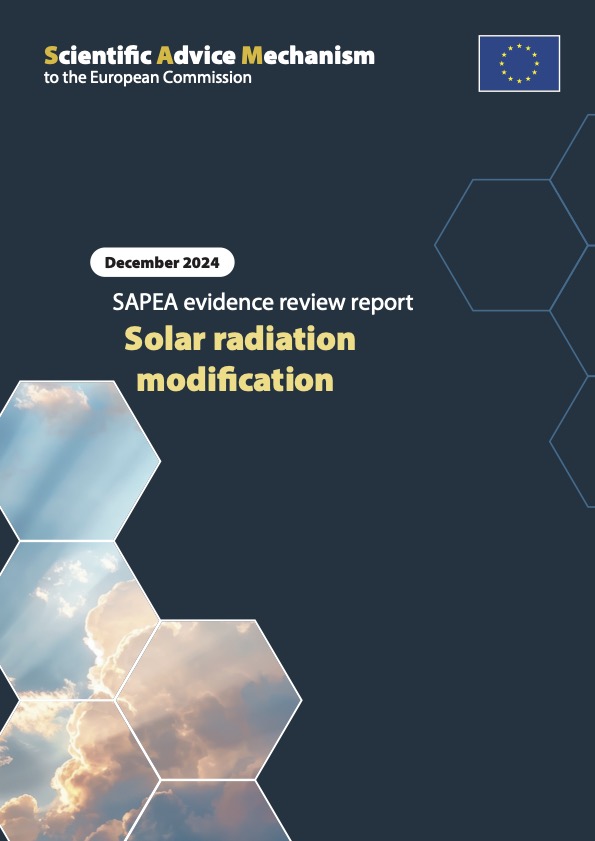
The use of technologies to modify solar radiation and thus reduce global warming is associated with highly uncertain benefits and risks. Two reports within the framework of the EU Scientific Advice Mechanism reflect the current state of scientific knowledge and serve as the basis for these key political recommendations: the reduction of CO2 emissions and adaptation to climate change as a continued top priority, and a Europe-wide moratorium on the use of solar radiation modification technologies.
From Switzerland, Ulrike Lohmann (University of Zurich) and Gabriel Chiodo and Axel Michaelowa (ETH Zurich) contributed to the scientific report on which the policy recommendations are based.
One Health governance in the European Union
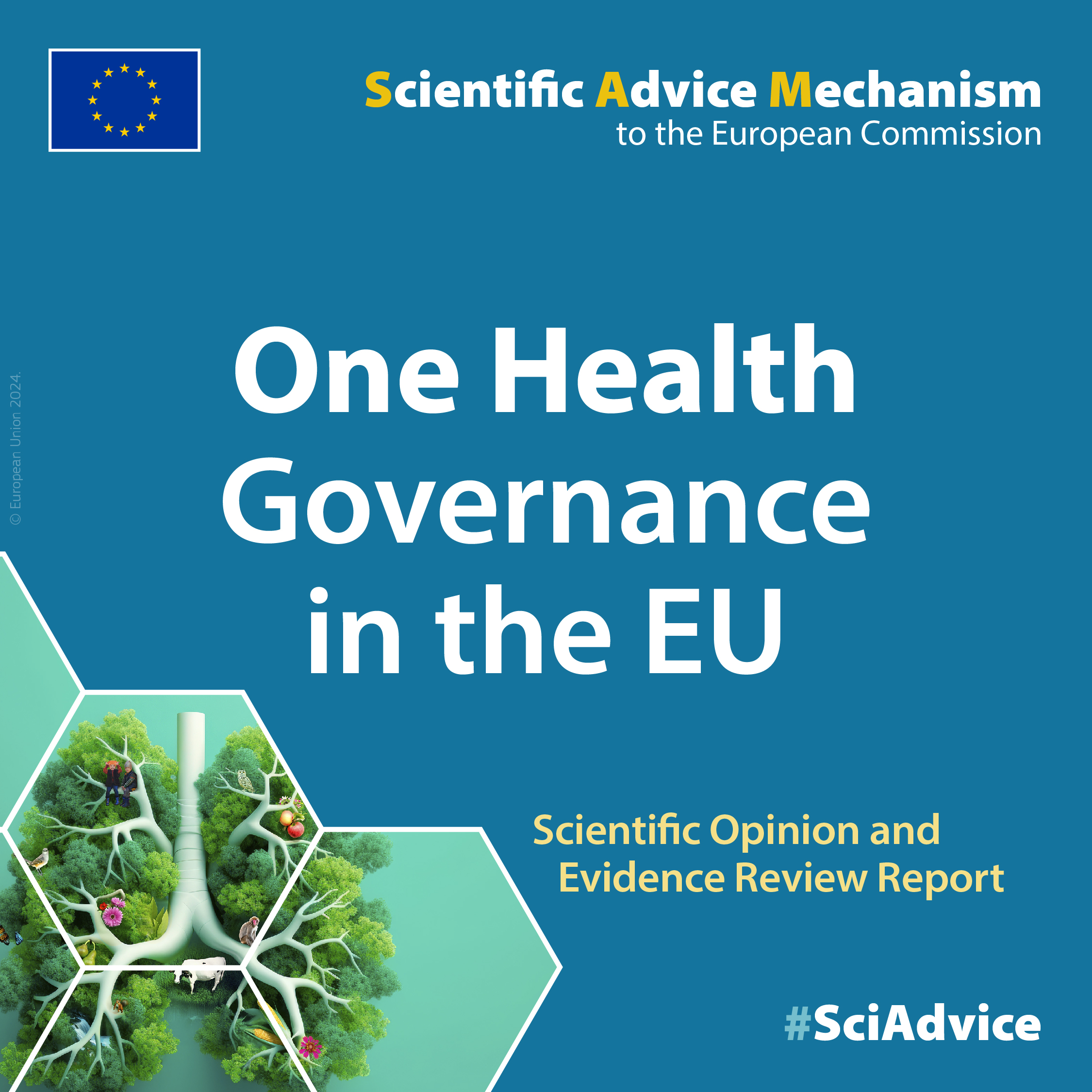
One Health sees human, animal and environmental health as a single system. Two reports within the framework of the EU Science Advice Mechanism propose EU policy measures for One Health, such as improving the coherence of EU policy, strengthening education and training and increasing support for research and innovation in this area.
The scientific review was written by renowned researchers from the academies' consortium SAPEA (Science Advice for Policy by European Academies). The policy recommendations based on this were drafted by the Group of Chief Scientific Advisors for the attention of the EU Commissioner for Health and Food Safety. Both reports emphasise the relationships between mental health, physical health and social conditions as well as the need for interdisciplinary research into human behaviours that affect One Health, e.g. wildlife trade, farming practices, water management and vaccination acceptance.
Jakob Zinsstag, researcher at the Swiss Tropical and Public Health Institute in Basel with several engagements at the Swiss Academies and co-chair of the SAPEA working group, says: «Europe should actively support regional, local, and global efforts, promoting the sharing of best practices and integrating a One Health perspective in education, professional training, and public awareness».
Scientific Integrity: Added Constraint or Best Practice?
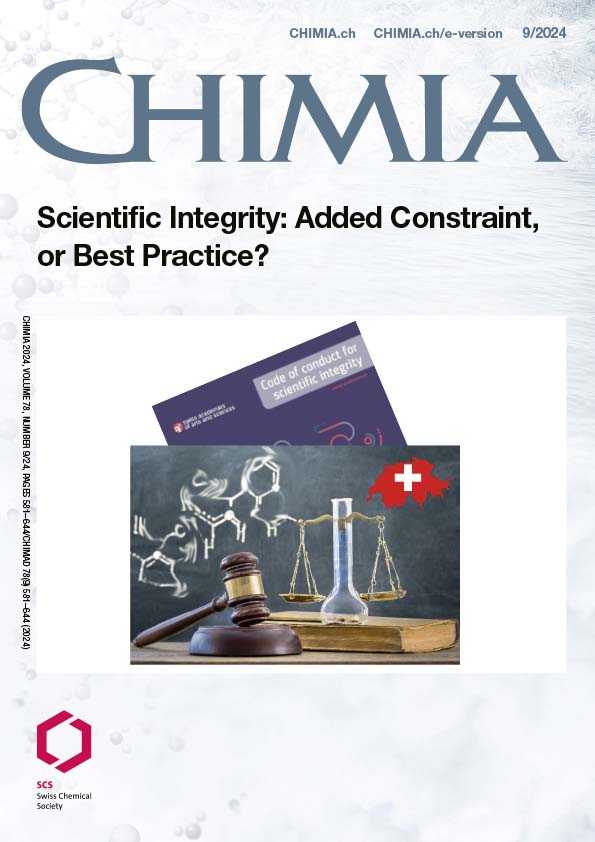
Scientific integrity in the chemical sciences
The journal Chimia, published by the Swiss Chemical Society, has published an issue focusing on scientific integrity. Edwin Constable, chair of the Swiss Expert Group on Scientific Integrity of the Swiss Academies of Arts and Sciences, provides an overview of scientific and research integrity, with a particular focus on the implications for the active chemical community in Switzerland. He also focuses on good scientific practice and highlights its benefits for researchers, institutions and the chemical sciences themselves. Another article by Christian Leumann, rector of the University of Bern until mid-2024, highlights the importance of scientific integrity for universities seeking to convey the credibility and acceptance of science to the public. Christian Leumann explains the necessity of continuously adapting existing regulations and presents Switzerland's recent progress in raising awareness towards scientific integrity.
A Panorama of Swiss Society 2024

The new series, "A Panorama of Swiss Society", is published by the Federal Statistical Office (FSO), the Universities of Neuchâtel and Fribourg and the Swiss Academy of Humanities and Social Sciences is the joint initiative of official statistics and social science research in the universities. It is the continuation of the previous Swiss Social Report. The aim of the new series is to make important findings on key socio-political topics and fundamental trends in Swiss society accessible for public interest.
The current issue is dedicated to the ageing of society. Demographic change and an ageing society are megatrends. Ageing refers both to individual development that continues well into old age and to the dynamics of institutions and structures as well as societal developments, attitudes and challenges. Conventional perceptions of old age no longer apply. This can be seen, for example, in novel ageing concepts in science and politics. The aim of this Panorama is to explore selected topics relating to ageing in greater depth. The publication thus paints a contrasting, multi-layered picture of various aspects and dimensions of ageing in Switzerland.
Swiss Data Literacy Charter
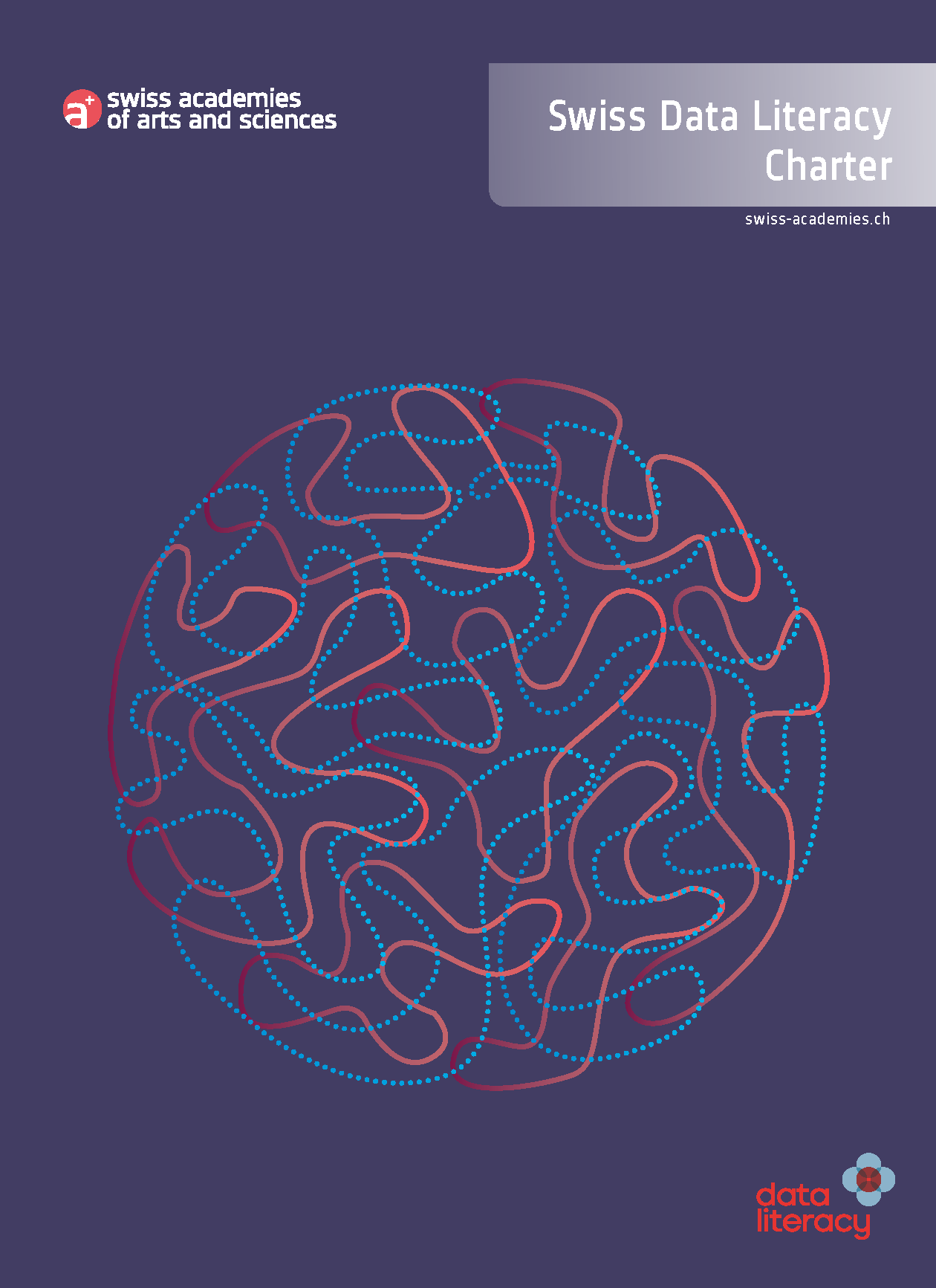
The Swiss Academies of Arts and Sciences are publishing a Data Literacy Charter for Switzerland. This Charter is intended to initiate a broad-based cultural change in the way society handles general and personal data. One aim is for each person to be in a position to determine how personal data is handled. A further aim of the Charter is that people should be able to critically evaluate data and statements based on it.
Swiss Academies of Arts and Sciences (2024): Swiss Data Literacy Charter.
doi.org/10.5281/zenodo.11146023.
European institute for AI in science, recommend European science academies
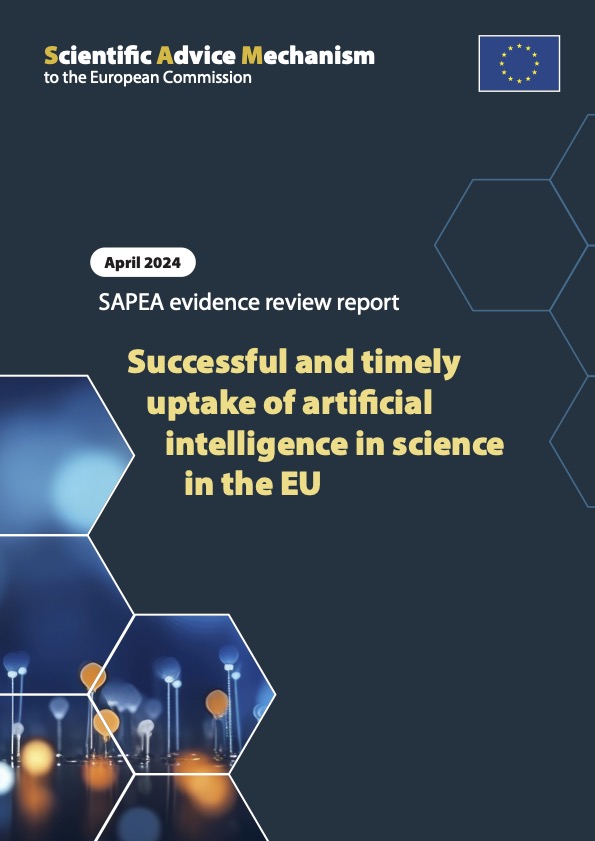
A new European institute for Artificial Intelligence in science and technologies of the future must be driven by people and communities, not only by profit: these are two key messages of renowned scientists. Nominated by the Swiss Academies of Arts and Sciences (a+), Andrea Emilio Rizzoli from the Dalle Molle Institute for Artificial Intelligence in Lugano co-chaired the group of scientists that drafted these messages. The new institute would provide massive high-performing computational power, a sustainable cloud infrastructure and AI training programmes for scientists. “That means giving universities and research institutes across Europe fair access to state-of-the-art AI facilities”, Andrea Rizzoli says. Additionally, the advice is to promote research on the philosophical, legal, and ethical issues that arise when AI is used in science, and the impact this has on fundamental human rights, transparency and accountability. Based on a request from EU Commissioner Margrethe Vestager, the recommendations support the EU strategy for AI in research and innovation. They were produced in the context of the Scientific Advice Mechanism that provides independent scientific evidence and policy recommendations to EU institutions. This mechanism includes the Academies’ consortium SAPEA, which gathers expertise from more than 100 institutions across Europe, and the Group of Chief Scientific Advisors, whose recommendations are informed by the SAPEA evidence.
Early learning opportunities for shaping a scientifically literate society
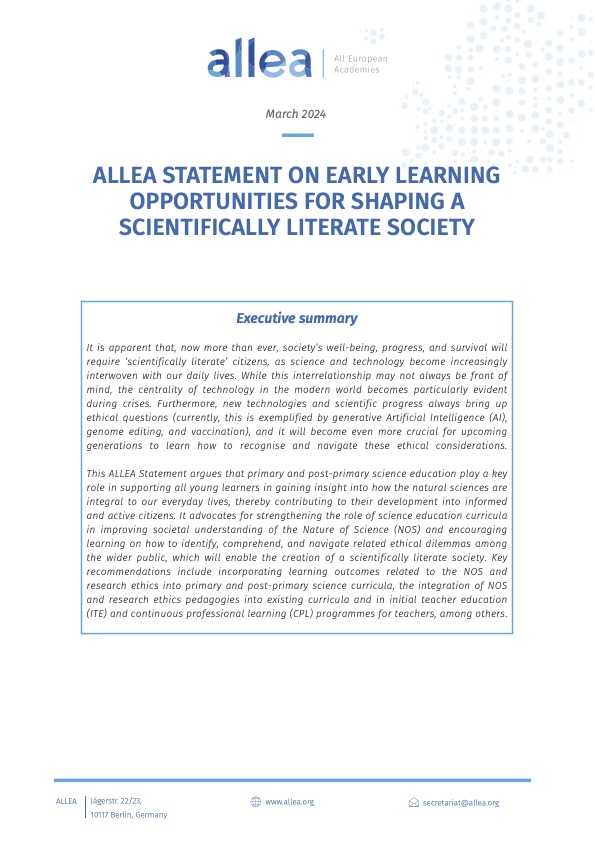
To equip upcoming generations with the requisite knowledge, skills and values to become informed, critical, responsible and ethically conscious participants in a scientifically literate society, this new European academies’ statement advocates to strengthen science education curricula from primary level.
Now more than ever, society’s welfare, progress and perhaps even survival, needs scientifically literate citizens. As science and technology become increasingly interwoven with our daily lives and bring up ethical dilemmas, it is critical for upcoming generations to know how to recognise and answer them. ALLEA, the Federation of European Academies of Sciences and Humanities, argues that science education from primary play a key role in equipping all young learners with the skillsets and values to successfully navigate these challenges.
New genomic techniques, intellectual property and crop development: European academy recommendations
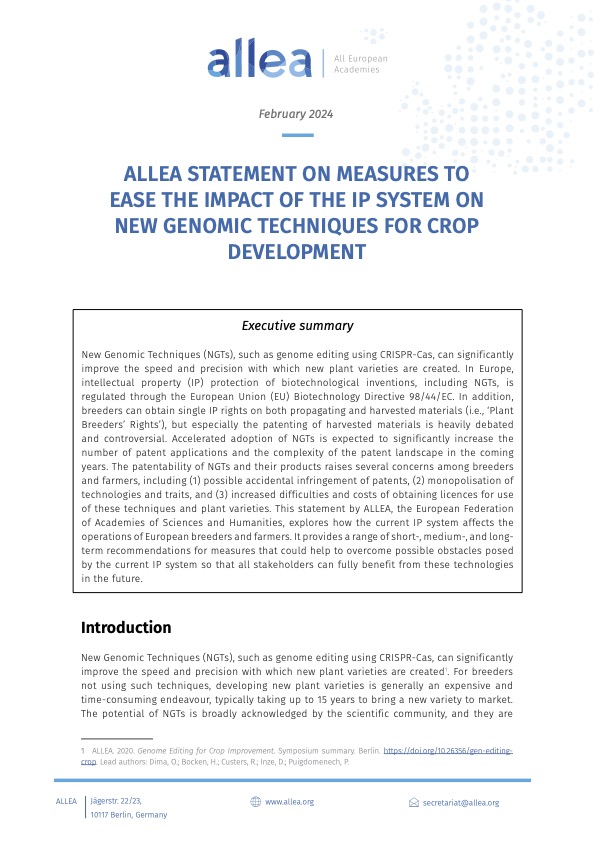
A new statement of European academies provides recommendations to help overcome obstacles posed by the current IP system so that all stakeholders can fully benefit from new genomic techniques. These techniques, such as CRISPR-Cas, entail a significant potential to contribute to sustainable crop development and food security. However, the current intellectual property system poses challenges for breeders and farmers: patenting harvested materials is controversial, and there are concerns about unintentional patent infringement as well as monopolisation of these technologies and the resulting plant varieties. After exploring how the current IP system affects the operations of European breeders and farmers, the statement provides recommendations to overcome possible obstacles. These recommendations were drafted by an expert task force of the All European Academies (ALLEA), co-chaired by Heinz Müller, member of the Swiss Academies’ Forum for Genetic Research and formerly with the Swiss Federal Institute of Intellectual Property.
Towards a plastics treaty
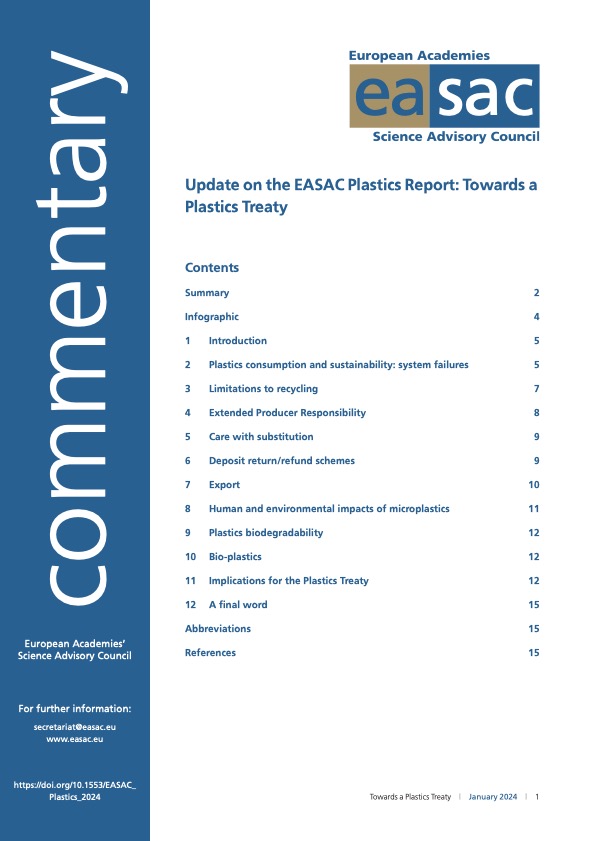
Our planet is drowning in plastics: more than 353 million tons of plastic waste were produced in 2019. Without drastic measures, 1,014 million tons annually will pollute waters and land by 2060, according to the OECD. To tackle this serious global environmental problem, the UN is seeking a treaty. An important meeting for this purpose takes place in April 2024. To inform these negotiations, European science academies make 10 recommendations.
The urgency of measures is emphasised by András Báldi, co-author of these recommendations: «Plastics do not rot, they only break down in smaller pieces and do not decompose. Meanwhile, the resulting micro- and nanoplastics have spread everywhere on the planet and are even found in our bodies.»
Promoting diverse career pathways for doctoral and postdoctoral researchers
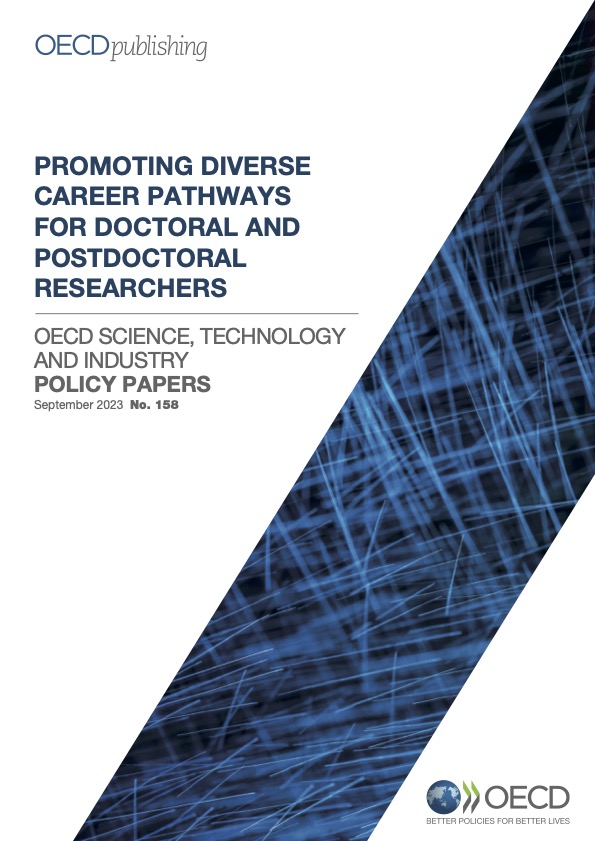
Reshaping career paths for doctoral and postdoc researchers outside academia: new OECD report with recommendations and policy options for that purpose. These recommendations focus on eight areas: promote engagement with employers outside academia, provide researchers with skills for diverse careers, valorisation of diverse career options, support career development for researchers, promote inter-sectoral mobility as well as reconfigure and support careers in academia. According to Verity Elston, co-director at the University of Lausanne’s Graduate Campus and chair of the international expert group that drafted the report: «The recommendations provide starting points for those of us who work in the development of doctoral and postdoctoral frameworks: whether we are in government departments, funding bodies, university administration or faculty management.»
Very large research infrastructures: policy issues and options
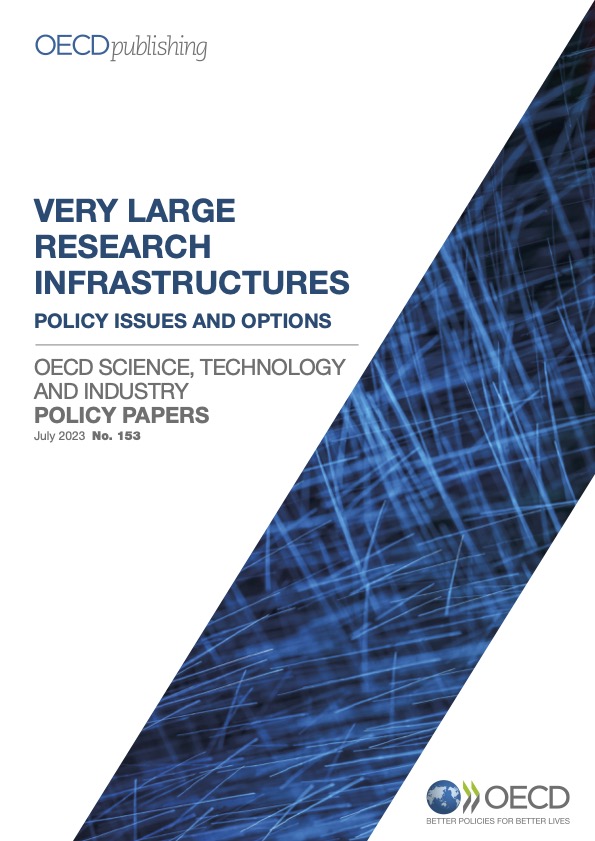
Good practices for the establishment of Very Large Research Infrastructures (VLRI), options for improving their operation and strategic considerations: this is the contents of a new OECD report for managers, funders and decision-makers.
The report was produced by an OECD Global Science Forum (GSF) expert group that reviewed more than 60 VLRI and conducted stakeholder interviews. Delegated by the Swiss Academies of Arts and Sciences, astrophysicist Willy Benz from the University of Bern co-chaired the group.
VLRI are unique, complex undertakings with a strong international dimension. However, evolutions in the political, socio-economic and scientific context challenge their planning and management. As Willy Benz notes: «Budgetary constraints and expectations to meet sustainable development goals are driving the need for VLRI to demonstrate impact beyond the production of world-class science: socio-economic returns, talent and skills development, capacity building, outreach are some examples ».
The Global Science Forum provides senior science policy officials of OECD member countries a venue for consultations with the objective to support improving science policies of these countries and share in the benefits of international collaboration.
The general part of the sciences. Towards the unity of science and a real studium generale
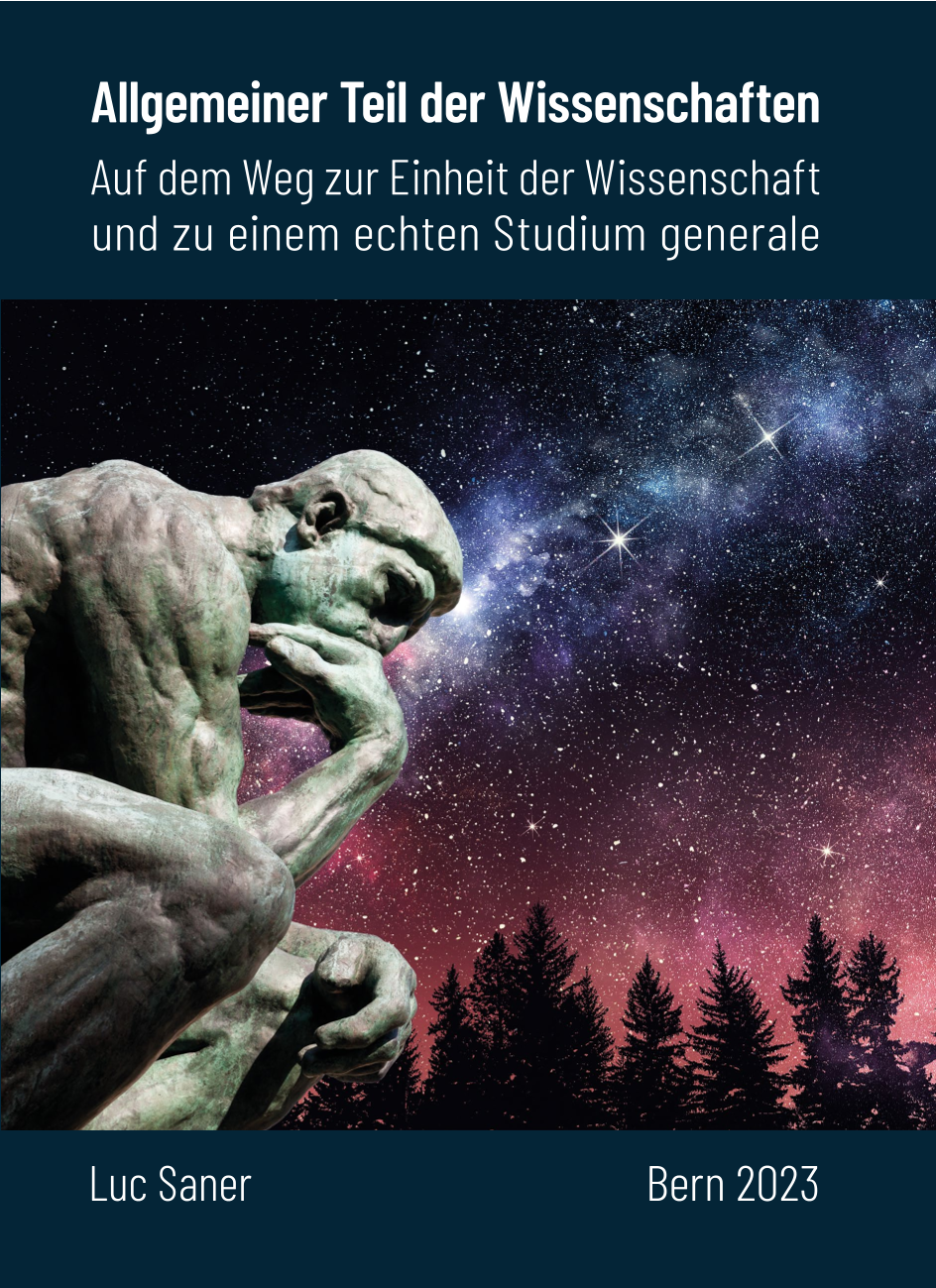
It is obvious that we humans have a global responsibility, also in our own interest. In this situation, however, we lack not only a holistic strategy and an organisation capable of acting globally but also generalists who understand the bigger picture, who can discern the relevant connections and who – thanks to holistic methods – can propose and implement holistic solutions. Without this strategy, without this organisation and without these generalists, our future will increasingly become an odyssey in dense fog with a high probability of collapse.
The project “Unity of science and a real studium generale” has, in fact, the not-so-modest aspiration of providing the foundations not only for the strategy and organisation mentioned above but, above all, for the urgently needed generalists. When building these foundations, we must first of all bear in mind that our world today is increasingly dependent on the sciences (from German: Wissenschaften), if only because of the growing complexity. Secondly, our fundamental problems such as energy, the environment and population growth are transdisciplinary problems in scientific terms. These problems elude the grasp of the individual scientific disciplines – also when they are added together in a more interdisciplinary approach. Rather, we need additional transdisciplinary approaches that can unite the scientific disciplines under superordinate aspects and thereby change them: It is a matter of bringing together the different scientific disciplines, which is tantamount to a second enlightenment. Thirdly, today‘s sciences cannot guarantee this transdisciplinarity because they are led by specialists and lack the necessary generalists.
In order to guarantee this transdisciplinarity, the general part of the sciences is required as a basis in which the individual scientific disciplines can be embedded. This leads to the unity of science. And on this basis, the unity of science, a real studium generale of two semesters‘ duration must be institutionalised at our universities. Such a studium generale is therefore a real studium generale because, in contrast to existing studia generalia, it is holistic. This studium generale could also be called studium fundamentale. The graduates of this real studium generale are the generalists we so urgently need. And these generalists should ultimately be able to assume our responsibilities in the Anthropocene, in cooperation with all of us, especially with regard to strategy and organisation.
Saner, Luc (2023). Allgemeiner Teil der Wissenschaften. Auf dem Weg zur Einheit der Wissenschaft und zu einem echten Studium generale.
Towards sustainable food consumption
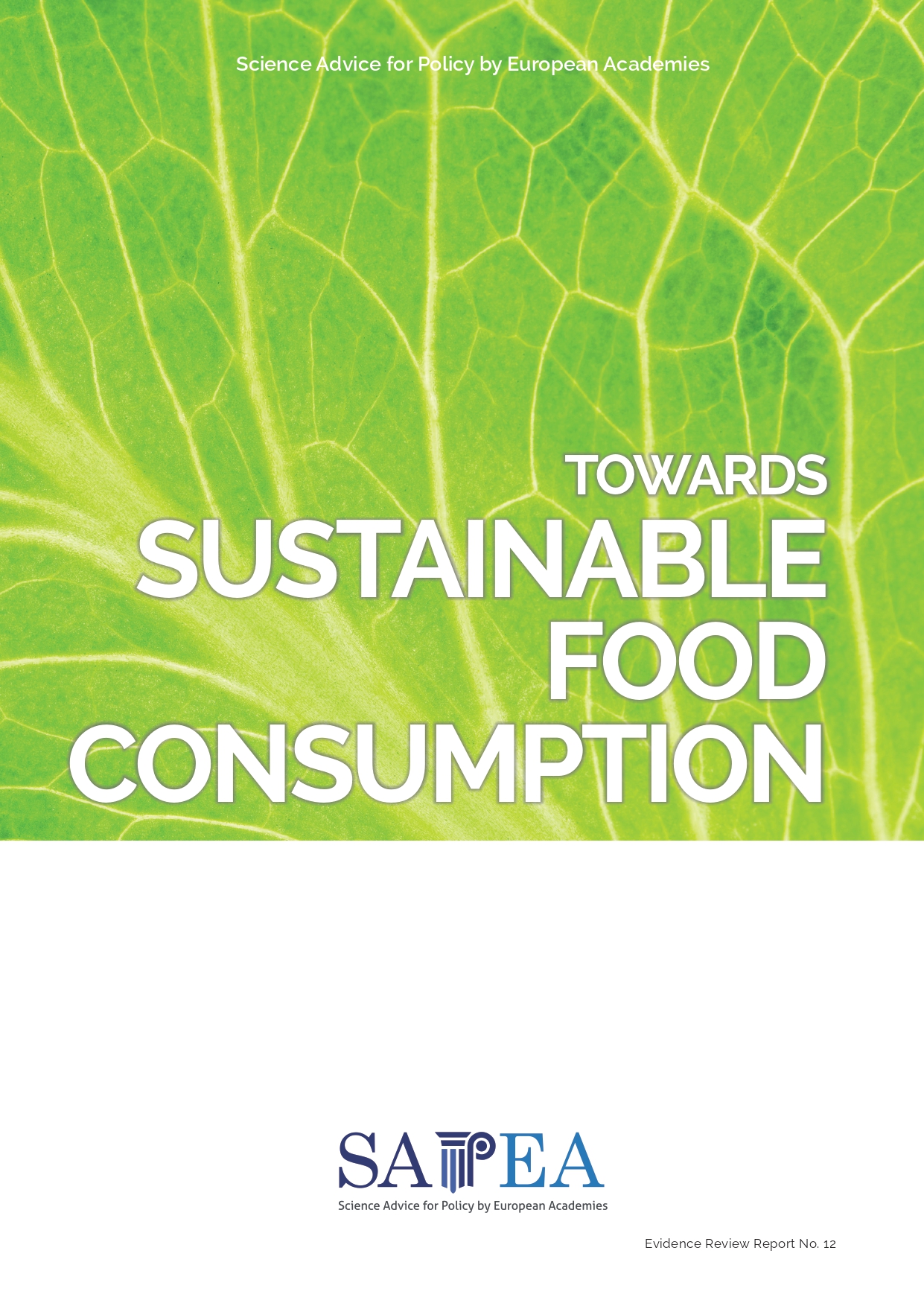
Towards sustainable food consumption
Making sustainable, healthy food an easy and affordable choice for consumers: this is necessary to transform food consumption because it has a major impact on the environment and because obesity and overweight affect ca. 60% of adults and 30% of children in Europe. A scientific report by the academy consortium SAPEA (Science Advice for Policy by European Academies) comments on the influence of food consumption. Based on this, the Group of Chief Scientific Advisors makes policy recommendations. Both were developed within the framework of the EU Scientific Advice Mechanism. Tanja Schneider from the University of St. Gallen contributed to the SAPEA report on behalf of the Swiss Academies of Arts and Sciences.
The future of gas

Natural gas is no cleaner than other fossil fuels and no alternative to coal on the road to a CO2-free energy supply. This is made clear by this new report by European researchers.
Using natural gas instead of coal or oil reduces greenhouse gas impacts only slightly or not at all. To mitigate climate change, it is crucial to stop using all fossil fuels, ban new natural gas boilers and massively expand electricity generation from renewable sources. Methane emissions have a lifetime in the atmosphere of only about 10 years, which is ten times shorter than that of CO2, but their 20-year global warming potential is more than 80 times that of CO2. The new scientific report recommends heat pumps and district heating as alternatives to gas boilers.
Neonicotinoids and their substitutes in sustainable pest control
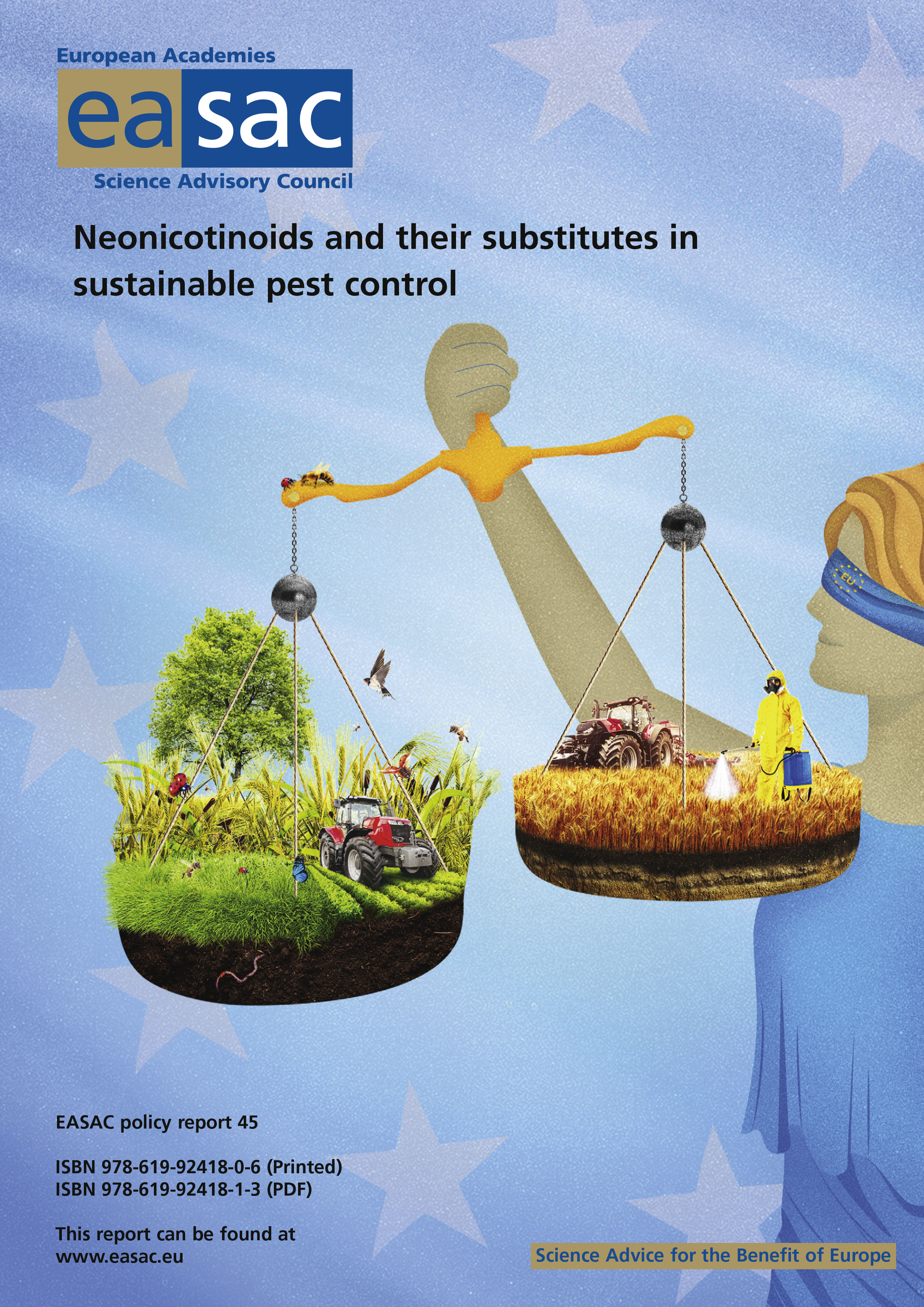
The EU must close loopholes to prevent the 2018 ban on the three main neonicotinoids from being further undermined, according to a new report by European Academies.
Neonicotinoids, a class of insecticides, indiscriminately affect pollinators and other beneficial insects, thereby threatening biodiversity and longer-term food security. The scientific report commends the EU’s Integrated Pest Management as the primary route to sustainable agriculture, that included banning three neonicotinoids. Yet it identifies loopholes in its implementation: studies that show that seven out of ten honey samples in the EU still contain traces of at least one of the bee-toxic pesticides. “It is counterproductive to kill everything, since once the pest adapts to the pesticide, there may be no natural enemies remaining, let alone essential pollinators. It is a similar problem to that we are seeing with the wide use of antibiotics,” comments Edward Mitchell of the University of Neuchâtel, who had contributed to the new report as delegate of the Swiss Academies of Arts and Sciences.
Open Access publication under “big deals” and the new copyright rules
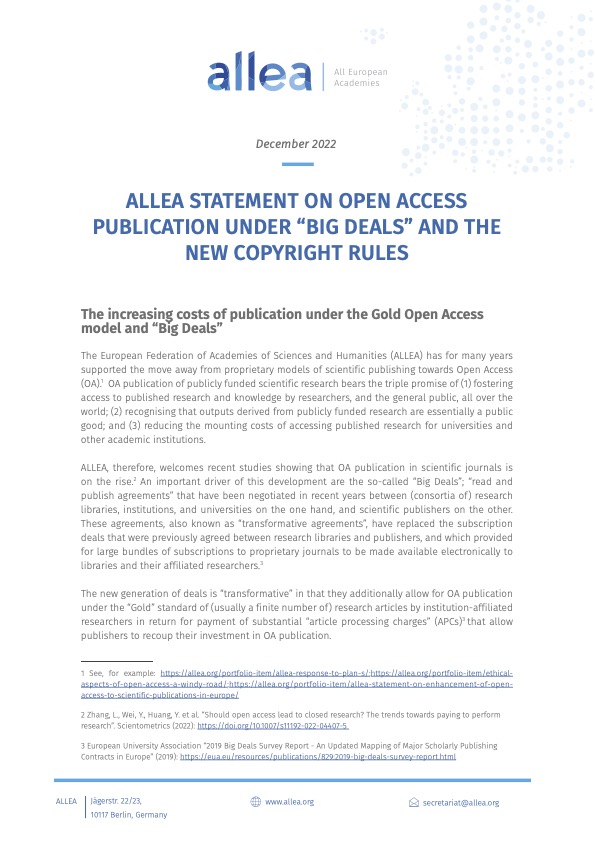
Read-and-publish agreements, so-called “Big Deals”, facilitate Gold Open Access publications. ALLEA, the European federation of Academies, applauds this but stresses that they fail to deliver on the promise of an equitable system for sharing and accessing research publications. While EU and national copyright laws provide for many rules to foster such systems, current agreements do not take them into account. ALLEA therefore recommends researchers and libraries to better consider their rights when negotiating future deals and to depart from the rights assignment model that prevails today. Also, national copyright legislation should be harmonised , EU-wide Secondary Publication Rights without embargo introduced and community-driven non-profit publishing ecosystem further developed.
Europe needs more strategic crisis management
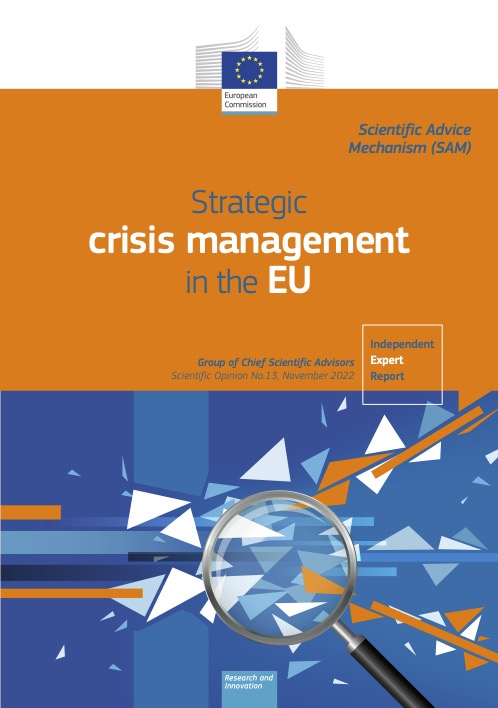
The Group of Chief Scientific Advisors’ latest report recommends the EU to plan and prepare for the entire timescale of crises, from preparedness to response and recovery. The report stresses that risk and crisis management approaches need to be rethought, because crises are changing in nature, crossing borders and sectors, with cascading and overlapping effects on society, the economy and the environment. The EU authorities are therefore advised to reinforce synergies across European institutions as well as between those and Member States. The Chief Scientific Advisors’ recommendations are based on the analysis by the academy network SAPEA (Science Advice for Policy by European Academies) in the context of the Scientific Advice Mechanism that provides independent and interdisciplinary advice on request to the European Commission to inform policymaking.
Towards climate sustainability of the academic system in Europe and beyond
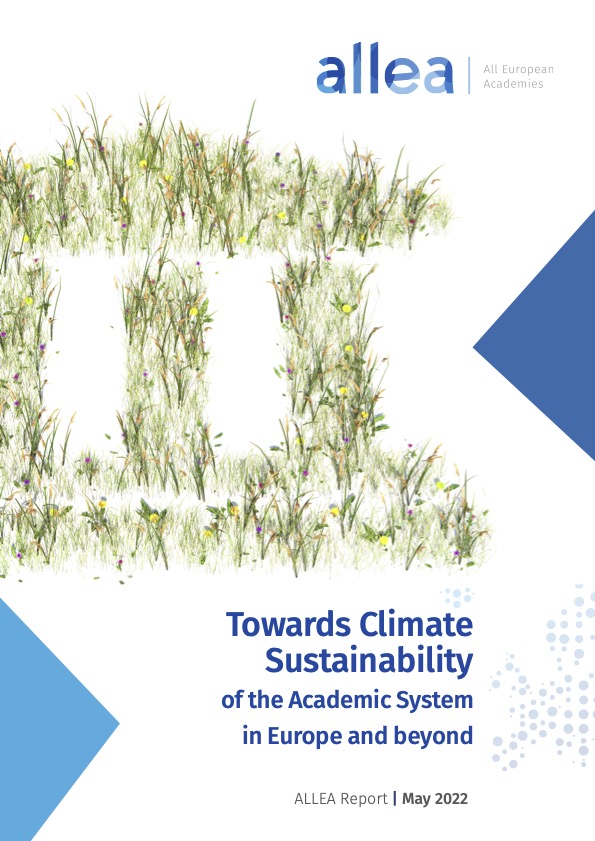
A new European Academies report makes recommendations to mitigate detrimental effects of the academic system on the climate. Showing that air travel is a major source of greenhouse gas emissions, it suggests that virtual interactions are critical to bring about a sustainable academic system, with a careful choice of in-person, hybrid, hub-based or fully virtual meetings to coexist. The report, however, emphasises that for example supercomputing, buildings and electricity may be equally or more important emission sources than air travel, depending on the nature of the operations of the stakeholder. The report was drafted by ALLEA, the European Federation of Academies of Sciences and Humanities, and the Young Academy in Germany. On behalf of the Swiss Academies of Arts and Sciences, Agnes Kreil from the ETH Zurich, was a contributing author.
Swiss Academies of Arts and Sciences
House of Academies
Laupenstrasse 7
P.O. Box
3001 Bern
Switzerland